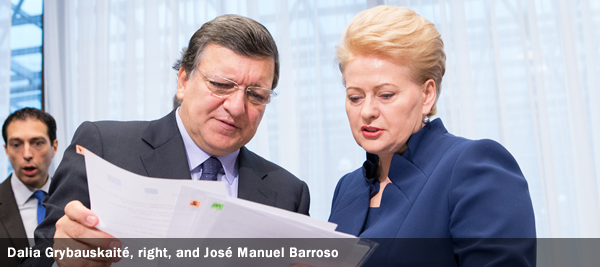The Digital Single Market is expected to be completed by 2015. It stands as a key priority on the Lithuanian EU Presidency agenda, said Lithuania’s President Dalia Grybauskaitė. But if there’s one thing politicians don’t understand very well, just one thing, it’s the digital world – ask Obama, or ask Merkel if you haven’t got Obama’s number…
Grybauskaitė, attending today’s European Council Summit in Brussels, commented: “At the present moment the EU is searching for ways to boost economic growth. In this respect, the digital market has a huge potential which is not yet used to full extent. The removal of barriers in this market will open more opportunities for both businesses and consumers. A full digital market can add considerably the EU’s GDP growth.”
The implementation of digital initiatives will, she said, provide Europeans with more opportunities: e-trade will build up, coordinated rules will advance investment across the European Union, and more public procurement will be done on the Internet. In this area, Lithuania, surprisingly, is a leader in the EU: almost 90 percent of its total public procurement is carried out electronically. As competition increases, the quality of digital services will improve and their prices will go down.
Grybauskaitė underlined that it was also essential to place special focus on training a skilled IT workforce. She said because there are an estimated 300,000 vacancies in the EU’s IT sector, with a shortage of 6,000 specialists in Lithuania alone, she believes it is important to improve the digital skills of Europeans and to upgrade IT studies. In Europe and in Lithuania, new initiatives are developed to deal with the most urgent issues of digital training.
On November 6-8, Lithuania will host one of the largest EU Presidency events – the European conference on information and communications technology “ICT2013: Create, Connect, Grow” where European ICT experts will discuss relevant policy issues.
